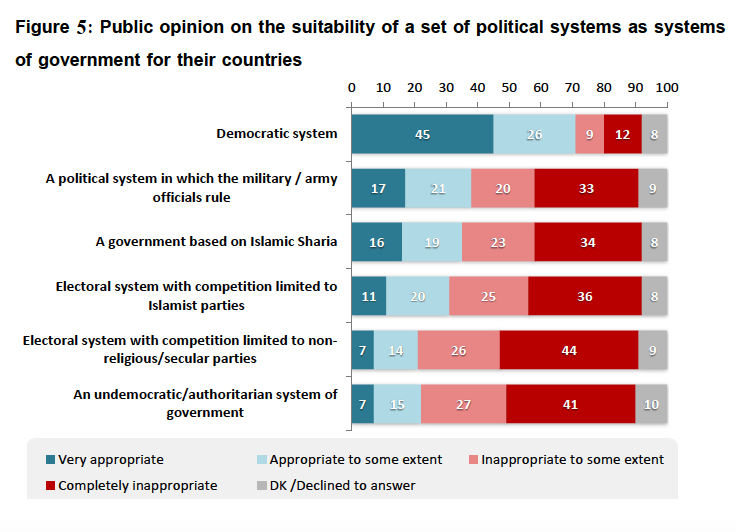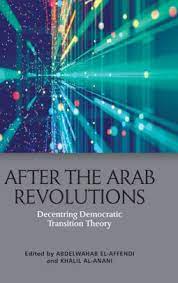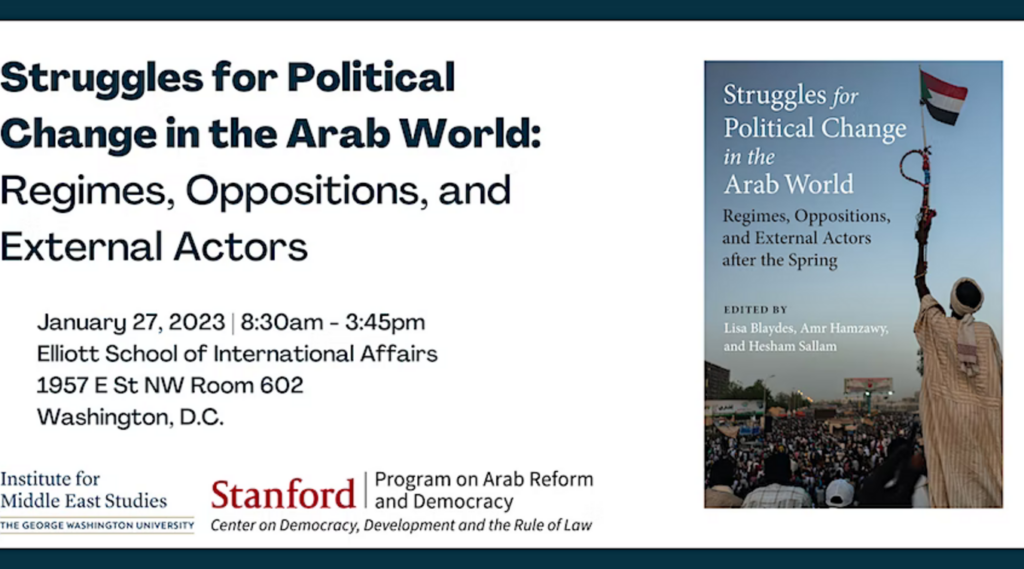 Almost three-quarters of Arab citizens support democracy in the region, confirming a consistent preference in every Arab Opinion Index since its launch in 2011, according to the Arab Center for Research and Policy Studies (ACRPS). The survey engaged more than 900 researchers and almost 33,000 respondents across 14 Arab countries.
Almost three-quarters of Arab citizens support democracy in the region, confirming a consistent preference in every Arab Opinion Index since its launch in 2011, according to the Arab Center for Research and Policy Studies (ACRPS). The survey engaged more than 900 researchers and almost 33,000 respondents across 14 Arab countries.
Some 73% of respondents agreed with the statement: “A democratic system, despite its issues, is better than other systems.” Support for democracy was highest in the Levant and North Africa.
Around 85% of respondents defined democracy in terms of content, with 34% of citizens saying it is “a guarantee of political and civil freedoms; 20% defined it as “a guarantee of equality and justice among citizens”; 14% emphasized “participation and the institutional aspect of a democratic system”; 6% said democracy is “a guarantee of security and stability”: and 5% defined it as “improving economic conditions.”
 OTHER FINDINGS
OTHER FINDINGS
- Citizens’ confidence in state institutions varies. Parliaments and legislative councils received the least amount, with only 47% expressing confidence.
- 87% of respondents believe that financial and administrative corruption is widespread.
- Just over a third of respondents (34%) said that their countries apply the law equally among citizens, while 39% think that they do not enjoy full equality. Almost a quarter of respondents (24%) believe the law is not applied equally at all.
SOCIAL MEDIA
- Almost all (98%) internet users in the Arab World have accounts on social media platforms. More respondents had Facebook accounts than any other social media platform, except in the Gulf, where more (77%), had Twitter accounts.
- A majority of Arab Citizens (75%) use social media to obtain news and political information. More than half of the users (51%) express their views on political events.
- 57% of social media users said that they do not trust information and news circulated on social media, a notable increase from the last AOI survey.
- Interaction and participation with political issues among Arab social media users is divided: while 48% interact with or participate in political issues, 48% do not.
Some 46% of respondents view the mass revolutions of the Arab Spring as very or somewhat positive, while 39% said they were very or somewhat negative.
“The results show that popular opinion is divided about the present state and future of revolutions,” the report adds. “While 40% of respondents stated that the Arab Spring is facing obstacles but will ultimately achieve its goals, 39% believe that it is over and that the old regimes have returned to power.”
 To mark the eleven-year anniversary of the Arab Uprisings, George Washington University’s Institute for Middle East Studies (IMES) and Stanford University’s Program on Arab Reform and Democracy (ARD) invite you to a series of panels examining major findings from the edited volume Struggles for Political Change in the Arab World: Regimes, Oppositions, and External Actors after the Spring.
To mark the eleven-year anniversary of the Arab Uprisings, George Washington University’s Institute for Middle East Studies (IMES) and Stanford University’s Program on Arab Reform and Democracy (ARD) invite you to a series of panels examining major findings from the edited volume Struggles for Political Change in the Arab World: Regimes, Oppositions, and External Actors after the Spring.
Elliott School of International Affairs
1957 E Street Northwest Room 602
Washington, DC 20052







